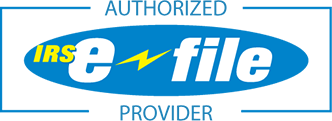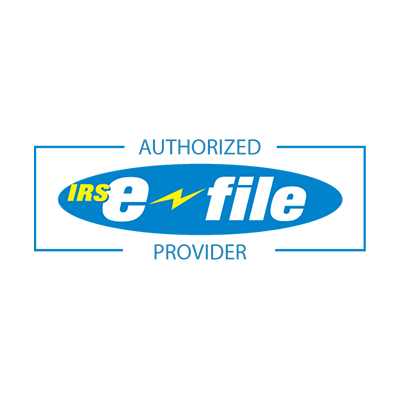Whether shopping for groceries, considering an online purchase, or making business decisions, counting the cost is more critical in today’s market than ever before. Although the cost of most things has risen significantly over the past few years, there are ways to approach purchases to trim the fat and distill down to absolute necessities to not simply keep your business going, but to help make it even more profitable. In the trucking industry, managing costs effectively is not just about survival, but about thriving in a competitive market. This detailed guide breaks down the key expenses and provides targeted strategies to control and reduce these trucking costs.
The Everyday Trucking Costs
Fuel Costs: Mastering the Art of Fuel Efficiency
With fuel expenses being a major variable cost – certainly one the most significant trucking costs – strategic planning can lead to significant savings. Implementing fuel-efficient driving techniques substantially lowers fuel consumption and maximizes mileage. Adopt practices such as gradual acceleration, avoiding idling, and using cruise control to maintain a steady speed. Keeping tires properly inflated can also lead to increased fuel efficiency, garnering more miles to the gallon. Utilizing fuel management systems to track and optimize fuel usage can lead to smarter purchasing decisions.
Maintenance and Repair
Effective maintenance scheduling like regular engine diagnostics and timely part replacements extends vehicle life and prevents costly downtime. A careful cost-benefit analysis nearly always proves that spending the money now on preventative maintenance minimizes the risk of spending a lot more in the future for major repairs. Additional education equips drivers with the knowledge and understanding to identify issues early and how to deal with them in the most cost-effective way. Implementing a vehicle maintenance management system can help track service schedules and manage repair histories efficiently. Building relationships with trusted mechanics and suppliers ensures quality service and potentially negotiable rates.
Insurance
Insurance is among the unfortunate but necessary trucking costs. The right insurance policy balances comprehensive coverage with reasonable premiums. Comparing quotes from different insurers annually ensures competitive pricing. Increasing deductibles can lower premiums but requires careful financial planning. Training programs focused on safe driving techniques can reduce accident rates, thus potentially lowering insurance premiums over time.
Regulatory Fees, Taxes, and Permits
An additional component of trucking costs, as with virtually any business across all industries, is paying the associated taxes and regulatory fees along with acquiring any necessary permits. Compliance with regulations, including Form 2290, is non-negotiable, but understanding these fees can help in budgeting accurately. Staying updated with regulatory changes through industry associations or online resources is crucial to avoid penalties and minimize trucking costs. Organization and good record-keeping help to prepare you for tax season. Leveraging tax professionals for accurate and timely filings can not only prevent costly mistakes and ensure compliance but help to ensure that you’re not overpaying or overlooking ways to reduce the amount of unnecessary taxes paid.
Leveraging Technology for Cost Efficiency
Modern technology has changed virtually every aspect of our lives – in most cases, making things more convenient, more efficient, and more cost-effective. Time is money, as they say, so whether it’s an app that reduces time spent hunting down financial records or a program or service that expedites logistics, leveraging technology can help add to your bottom line and help shave down some of your trucking costs. Investing in modern, fuel-efficient trucks and technologies like aerodynamic modifications can yield long-term savings. Installing cargo sensors in trailers allows you to detect available space, which can be utilized to coordinate additional stops along a route and streamline deliveries to maximize profits. Utilizing telematics systems for real-time vehicle monitoring helps in making data-driven decisions to optimize operational efficiency.
Route Optimization: Cutting Costs Beyond Fuel
Intelligent route planning reduces not just fuel costs, but also wear and tear on vehicles. As noted above, time savings equals cost savings. Use GPS and routing software to find the shortest or most efficient routes with fewer stops and more consistent speed limits to maximize fuel efficiency and save time. Strategic planning and route optimization includes scheduling deliveries and pick-ups in such a way to minimize empty runs and maximize vehicle utilization.
Staying abreast of highway improvement plans helps with route planning to avoid the traffic jams and subsequent delays associated with road construction. Planning around holidays can also help avoid congestion and improve efficiency. This is true not only with respect to an increase in the number of people traveling to visit relatives but also with respect to the increase in demand for consumer goods as Christmas approaches, which directly impacts the trucking industry, highlighting the criticality of route selection. With the potential for iced-over bridges, detours, or other unforeseen delays, planning to account for winter weather is essential.
Take The Stress Out of Filing Your HVUT With i2290
Proficient management of trucking costs involves a combination of smart planning, continuous learning, and choosing the right tools. One of the tools that makes life easier for you and facilitates one of those trucking costs is paying your HVUT with i2290.
With i2290, you can enjoy the convenience of e-filing your return from anywhere with internet access, saving time and money, helping you avoid failure to file and all the associated penalties; you receive your stamped Schedule 1 in mere minutes, which is maintained digitally for seven years for easy access.
Our customers can file from anywhere in the world, access their tax documents online whenever they need, and even file VIN corrections and weight increase amendments for free. Plus, if you need help with any stage of the process, our world-class customer service team is always happy to help. Are you ready to bypass the penalties and file your Form 2290? Why wait? Create an account with us today!
Special note: This article is for general purposes, and is not intended to provide, and should not be relied on for tax, legal, investment, or accounting advice. The best way to ensure you’re properly filing and paying appropriate taxes is by following IRS regulations and consulting with a tax professional.


